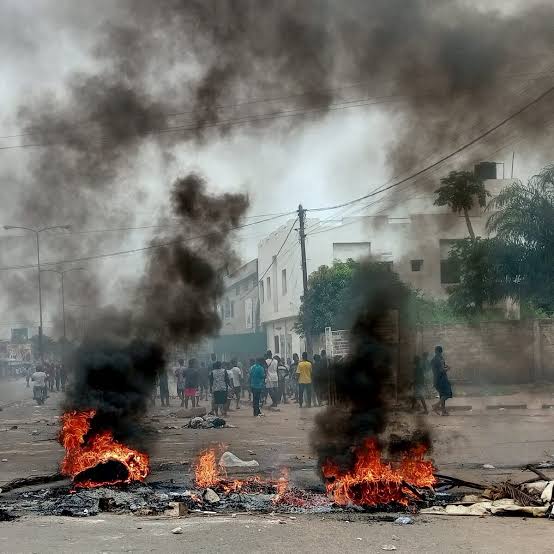At least seven people have died following violent anti-government protests in Togo’s capital, Lomé, according to a coalition of civil society and human rights groups.
The protests erupted last Thursday over soaring living costs and political frustration under President Faure Gnassingbé, who recently assumed a new leadership role without term limits.
Witnesses say soldiers used tear gas and batons to disperse crowds.
A joint statement from 12 rights organizations accused security forces of brutal crackdowns.
They alleged beatings, arbitrary arrests, and destruction of private property.
According to the groups, three bodies — including two minors — were pulled from Be lagoon, east of Lomé, on Friday, June 27.
Two more, reportedly brothers, were recovered from Akodessewa Lake. Another two bodies were found Saturday in Nyekonakpoe district.
In total, seven people were confirmed dead.
The government has acknowledged some of the deaths but claimed the victims drowned.
In a statement released on Sunda, June 29, authorities said the bodies from Be and Akodessewa were found in water and that no signs of foul play were confirmed.
“The government expresses its sympathy to bereaved families,” the statement read, urging residents to follow water safety measures during the rainy season.
Rights groups have rejected the explanation, accusing the government of a cover-up.
“The violence was shocking and deliberate,” said one activist, who asked to remain anonymous for safety reasons.
Tensions have been escalating since President Gnassingbé took the powerful position of President of the Council of Ministers in May a role with no term limits.
Critics have described the move as a “constitutional coup.”
Amnesty International previously condemned the June 5–6 arrests of dozens of demonstrators.
Though many have since been released, fear of further crackdowns remains high.
The government has praised the security forces’ conduct and confirmed several arrests.
Togo has been ruled by the Gnassingbé family since 1967.
Protesters and rights groups say the country is slipping further into authoritarianism amid growing regional instability in West Africa.







